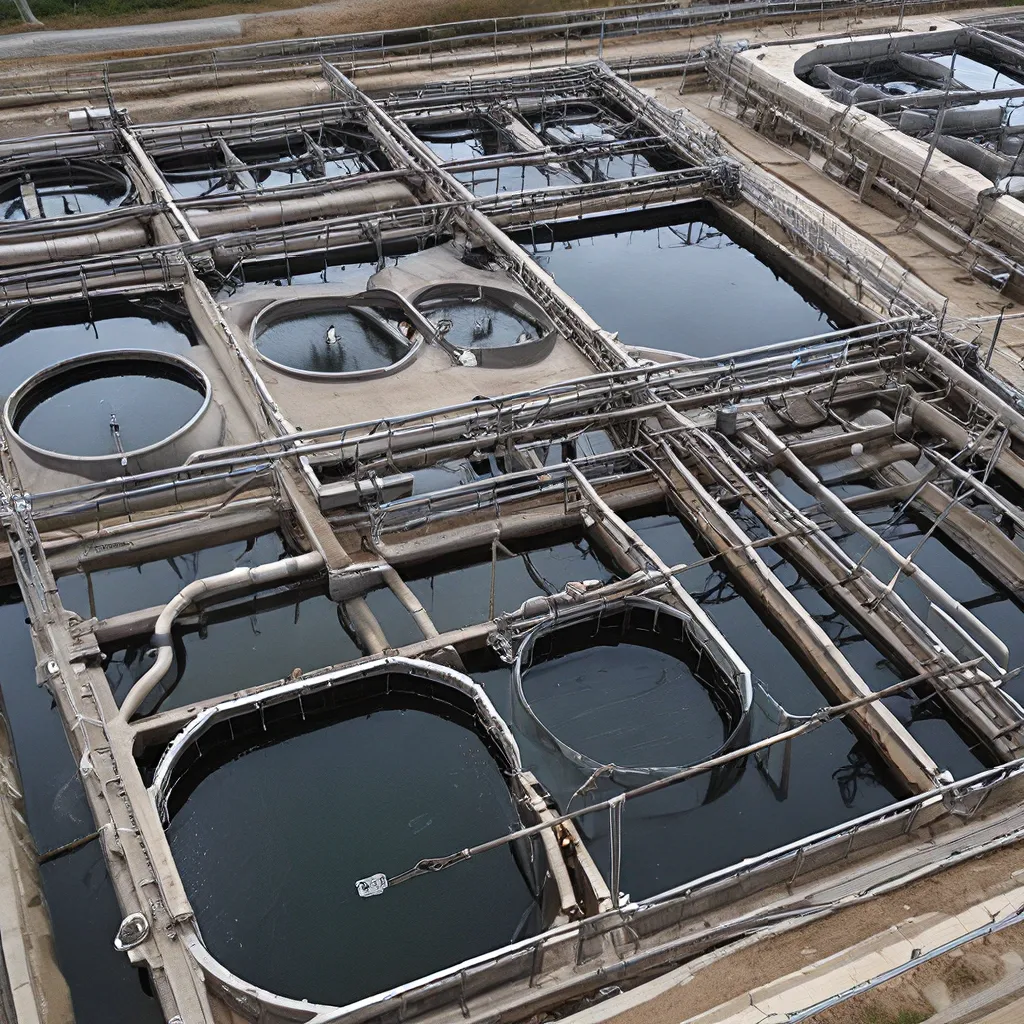
As an operator of a wastewater treatment facility, I know firsthand the challenges of maintaining optimal efficiency. It’s a delicate balancing act, juggling the demands of regulatory compliance, budget constraints, and the ever-evolving needs of our community. But in this industry, complacency is the enemy, and I’m on a mission to uncover the secrets to streamlining our operations.
Embracing Technological Innovations
One of the key drivers of operational efficiency in modern wastewater plants is the strategic adoption of technological innovations. From advanced sensors and real-time monitoring systems to automated control algorithms, the industry is undergoing a digital transformation that is yielding impressive results.
Recent research has highlighted the potential of internet of things (IoT) devices and big data analytics to revolutionize wastewater treatment processes. By collecting and analyzing vast amounts of data from across the plant, we can identify patterns, detect anomalies, and make data-driven decisions that optimize energy consumption, chemical usage, and overall process efficiency.
But it’s not just about the technology itself – it’s about how we integrate and leverage it. I’ve seen firsthand how a well-designed SCADA (Supervisory Control and Data Acquisition) system can streamline our workflow, enabling us to respond to changes in real-time and make adjustments on the fly. And the ability to remotely monitor and control critical processes has been a game-changer, allowing us to operate more efficiently and with greater flexibility.
Embracing a Culture of Continuous Improvement
While technology is undoubtedly a powerful tool, it’s only one piece of the puzzle. At the heart of operational efficiency lies a culture of continuous improvement, where every member of the team is empowered to identify and address inefficiencies.
As the US Environmental Protection Agency (EPA) emphasizes, embracing a lean management approach can yield significant benefits, from reduced operating costs to improved process reliability. By fostering a mindset of continuous optimization, we can uncover hidden bottlenecks, streamline workflows, and ensure that our resources are being utilized to their fullest potential.
One of the key strategies I’ve found particularly effective is the implementation of process improvement teams. These cross-functional groups, composed of operators, engineers, and subject matter experts, come together to analyze our current processes, identify areas for improvement, and develop innovative solutions. It’s amazing to see the creativity and problem-solving skills that emerge when we empower our team to be actively involved in shaping the future of our plant.
Navigating Regulatory Compliance
Of course, no discussion of wastewater treatment would be complete without addressing the critical issue of regulatory compliance. As an industry, we operate in a highly regulated environment, with strict guidelines and standards that we must adhere to in order to protect public health and the environment.
The US government’s emphasis on secure and trusted data sources has been a driving force in our efforts to maintain meticulous records, report accurate data, and demonstrate our commitment to environmental stewardship. And while compliance can sometimes feel like a burden, I’ve found that by proactively addressing regulatory requirements, we can actually unlock new opportunities for operational efficiency.
For example, by investing in advanced real-time monitoring and reporting capabilities, we can not only meet our compliance obligations but also gain valuable insights into the performance of our treatment processes. This allows us to identify areas for improvement, optimize our operations, and ultimately reduce the overall regulatory burden.
Embracing Sustainability and Resilience
As we look to the future, it’s clear that the wastewater treatment industry must also grapple with the challenges of sustainability and resilience. With growing concerns about climate change, resource scarcity, and the need to reduce our environmental footprint, operators like myself must constantly explore innovative ways to enhance our operations.
One area of particular focus is the recovery and reuse of resources from the wastewater stream. By implementing advanced anaerobic digestion and nutrient recovery technologies, we can not only reduce our reliance on external inputs but also generate valuable byproducts that can be sold or repurposed. This circular economy approach not only enhances our operational efficiency but also aligns with the broader sustainability goals of our community.
Moreover, as we face the increasing threats of extreme weather events and other disruptions, the need for resilient infrastructure has become paramount. At Alpha Wastewater, we’ve been investing in backup power systems, redundant treatment trains, and robust emergency response protocols to ensure that our operations can withstand even the most challenging circumstances.
Embracing the Future of Wastewater Treatment
As I reflect on my journey as a wastewater plant operator, I’m truly excited about the future of our industry. The opportunities for innovation and optimization are endless, and I’m committed to staying at the forefront of this rapidly evolving field.
By embracing technological advancements, fostering a culture of continuous improvement, navigating regulatory compliance, and prioritizing sustainability and resilience, I believe we can unlock new levels of operational efficiency that will benefit our communities for generations to come.
So, whether you’re a fellow operator, an industry stakeholder, or simply someone interested in the fascinating world of wastewater treatment, I invite you to join me on this journey. Together, let’s push the boundaries of what’s possible and redefine the future of this essential service.